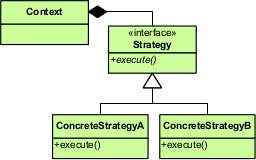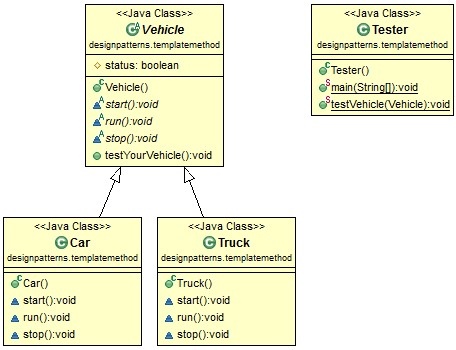How do we convert the ledgacy code into Lamda Style ? In Java 8, you may encounter that one function can be done in Java 8 with multiple approaches , So which implementation shall we choose ?
Restructure 1 - Anonymous Class to Lamda
// convert from anonymous class into lamda Runnable r2 = (Runnable) () -> System.out.println("Hello");
Restructure 2 - Use predefined implementations
// Don't use int totalCalories = menu.stream().map(Dish::getCalories).reduce(0, (c1, c2) -> c1 + c2); // recommend int totalCalories = menu.stream().collect(Collectors.summingInt(Dish::getCalories)); // Don't use inventory.sort((Apple a1, Apple a2) -> a1.getWeight().compareTo(a2.getWeight())); // recommend inventory.sort(comparing(Apple::getWeight));
Restructure 3 - Use Stream
menu.parallelStream().filter(d -> d.getCalories() > 300).map(Dish::getName)
.collect(toList());
The code above is a transfer from normal collection loop into Stream way , However, In our real work, This kind of code is hard to be implemented. as In the collection loopping, we may use break, continue or return , situations are complex . Now, this issue can be solved by some third party library
Restructure 4 - short & frequent data retrival
public static void main(String[] args) { // generateDiagnostic() is frequently triggered log(Level.FINER, () -> "Problem: " + generateDiagnostic()); } public static void log(Level level, Supplier<String> msgSupplier) { //... } public static String generateDiagnostic() { return "ok"; }
Restructure 5 - Strategy Pattern
The above Image is the old Strategy Pattern Demo , Now, We don't need it any more and we don't need to create extra classes to implement an interface but can declare and use strategy directly.
// Strategy A Validator numericValidator = new Validator((String s) -> s.matches("[a-z]+"));
boolean b1 = numericValidator.validate("aaaa"); // Strategy B
Validator lowerCaseValidator = new Validator((String s) -> s.matches("\\d+")); boolean b2 = lowerCaseValidator.validate("bbbb");
Restructure 6 - Template Pattern
The above illustration is a normal template pattern , well what if you need another template with just a samll difference with original template, in Java 7, You need to recreate a new template , In Java 8, It's very simple & dynamic.
public abstract class OnlineBanking { // overrall template public void processCustomer(int id, Consumer<Customer> makeCustomerHappyBehaviours) { Customer c = DataBase.getCustomerWithId(id); makeCustomerHappyBehaviours.accept(c); // can accept differnt behaviours } }
public class BankOfTokoyOnlineBanking extends OnlineBanking {
// bank of tokoy's template
public void myTemplate() {
new BankOfTokoyOnlineBanking().processCustomer(1337, (Customer c) -> System.out.println("Hello " + c.getName())); } }
Restructure 7 - Chain Of Responsibility
This is so StraitForward with the help of Function interface discussed in previous article.
public String processLineA() { UnaryOperator<String> headerProcessing = (String text) -> "From Raoul Alan: " + text; UnaryOperator<String> spellCheckerProcessing = (String text) ->
text.replaceAll("labda", "lambda"); Function<String, String> pipeline = headerProcessing.andThen(spellCheckerProcessing); String result = pipeline.apply("sexy?!!"); return result; }
Restructure 8 - Factory Pattern
we have discussed this previously in method reference.final static Map<String, Supplier<Product>> map = new HashMap<>(); static { map.put("loan", Loan::new); map.put("stock", Stock::new); map.put("bond", Bond::new); } public static Product createProduct(String name){ Supplier<Product> p = map.get(name); if(p != null) { return p.get(); } throw new IllegalArgumentException("No such product " + name); }
Restructure 9 - Debug
Lamda's Stream is a flow/pipleline process. then How do we debug them step by step like what we did previously adding those break point in application ? We use peek()List<Integer> result = numbers.stream() .peek(x -> System.out.println("from stream: " + x)) .map(x -> x + 17) .peek(x -> System.out.println("after map: " + x)) .filter(x -> x % 2 == 0) .peek(x -> System.out.println("after filter: " + x)) .limit(3) .peek(x -> System.out.println("after limit: " + x)) .collect(toList());
from stream: 3
after map: 20
after filter: 20
after limit: 20
from stream: 4
after map: 21
from stream: 5
after map: 22
after filter: 22
after limit: 22



No comments:
Post a Comment